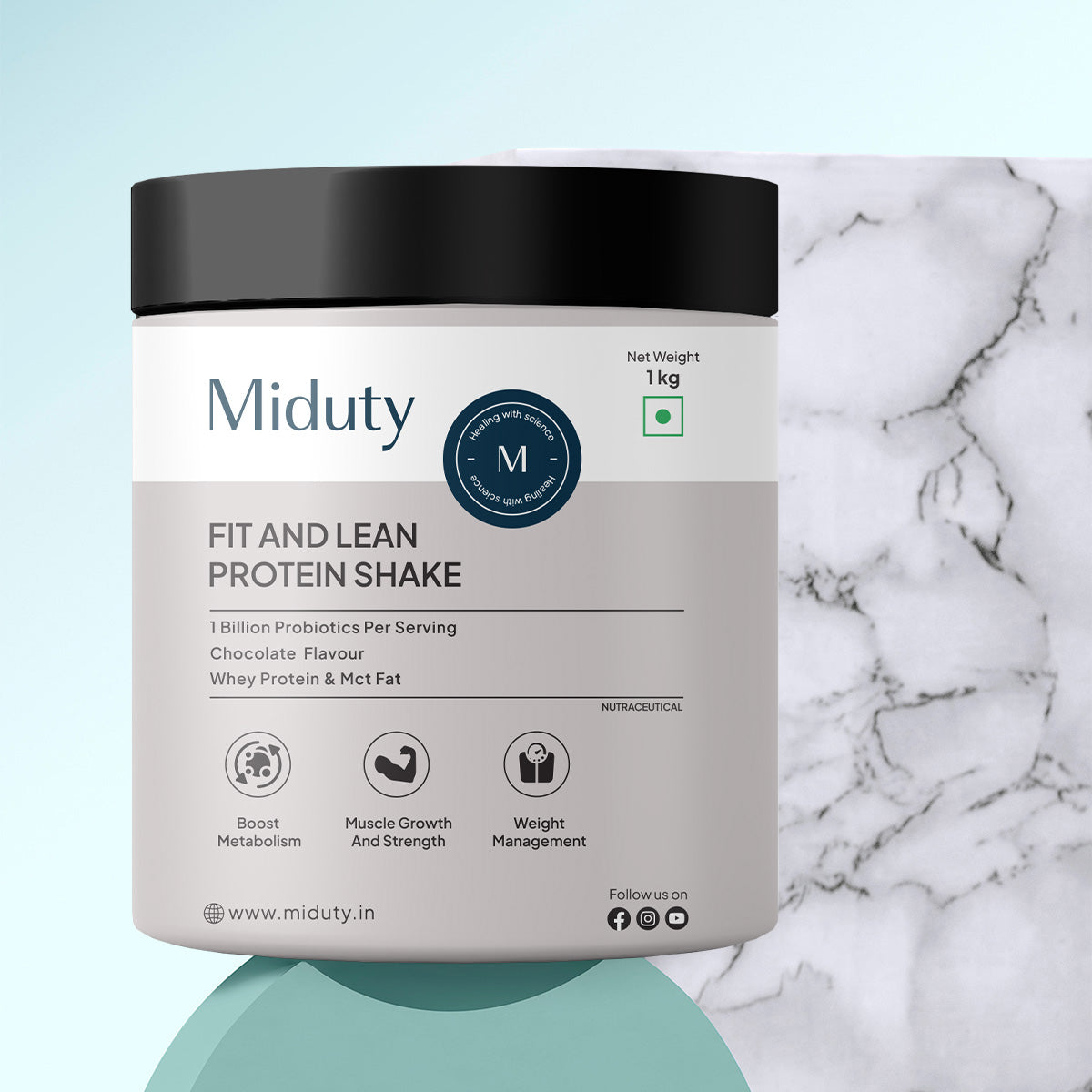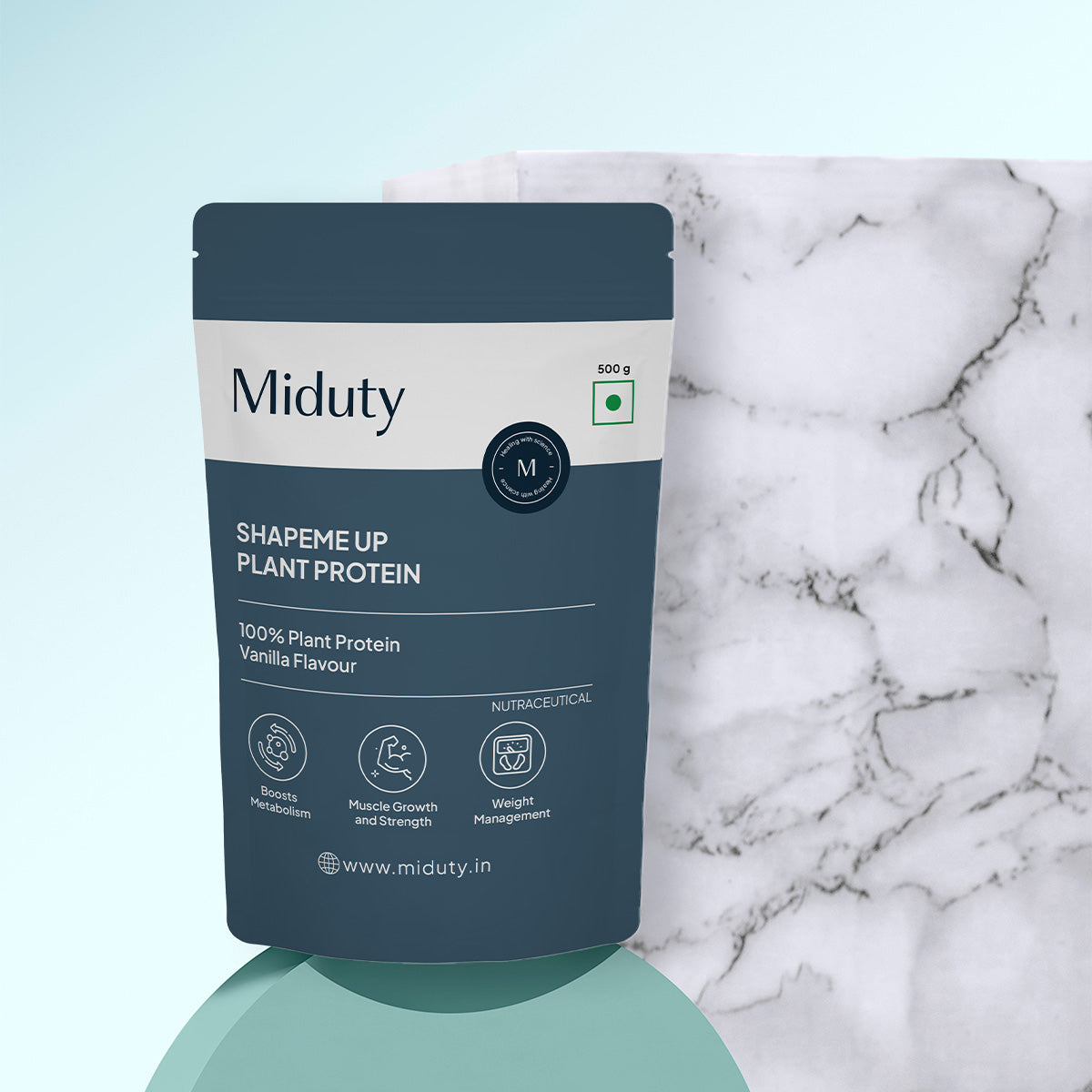
Intermittent Fasting 101: A Beginner’s Guide to Getting Started
Intermittent fasting has taken the wellness world by storm, but despite its buzz, many people struggle to use it effectively. We hear about its benefits everywhere, but when it comes to weight loss, the frustration kicks in.
You skip meals and deal with hunger, yet the scale barely moves, leaving you stressed and wondering what you're doing wrong. It's not just about when to eat, but how to make fasting work for you without adding extra stress to your journey.
But what exactly is intermittent fasting, and how do you get started? In this blog, we'll dive into everything you need to know about intermittent fasting and how to make it truly work for your weight loss goals and other health benefits.
What is Intermittent Fasting (IF)?
Intermittent fasting is an eating pattern that cycles between periods of fasting and eating. Unlike traditional diets that focus on what to eat, intermittent fasting is all about when to eat. People typically fast for a specific number of hours each day or limit their eating to a certain number of days per week.
The idea behind IF is that by giving your body a break from constant food intake, you can help it repair, burn fat more effectively, and improve overall health. Now, let's take a look at some of the key benefits.
What are the Benefits of Intermittent Fasting?
|
Benefits |
Description |
Weight Loss
|
One of the most common reasons people turn to intermittent fasting is for weight loss. By limiting your eating window, you naturally reduce your calorie intake. [1] At the same time, your metabolism gets a boost, helping you burn more fat during fasting periods. This makes IF an effective tool for shedding those extra pounds. |
Cellular Repair and Autophagy
|
During fasting, your body undergoes a process called autophagy. This is like your body's internal "cleanup crew," where it removes damaged cells and regenerates new ones. Autophagy helps with cellular repair, promoting longevity and reducing the risk of chronic diseases. [2] |
Improved Insulin Sensitivity
|
Intermittent fasting has been shown to improve insulin sensitivity, which is crucial for controlling blood sugar levels. It helps reduce blood sugar by improving insulin sensitivity and promoting better glucose regulation. This can help reduce the risk of developing type 2 diabetes and support overall metabolic health. [3] |
Heart Health
|
Research suggests that intermittent fasting can reduce risk factors for heart disease, such as lowering cholesterol, reducing blood pressure, and improving inflammatory markers. [4] |
Brain Health
|
Your brain can benefit from intermittent fasting too. It helps reduce oxidative stress, and inflammation and boosts brain-derived neurotrophic factor (BDNF), a protein that supports brain health. Some studies suggest that intermittent fasting may reduce the risk of neurodegenerative diseases like Alzheimer's. [5] |
Metabolism Boost & Fat Burning
|
Intermittent fasting helps with fat burning and boosts metabolism by giving your body time to switch from using sugar for energy to using fat. When you fast, your insulin levels drop, which encourages your body to burn stored fat. Plus, it can increase the production of hormones that help burn fat and improve how efficiently your body uses energy. Overall, this can lead to weight loss and more effective metabolism. A boosted metabolism and increased fat burning can enhance feelings of fullness, helping to reduce hunger. |
Types of Intermittent Fasting
There are several ways to approach intermittent fasting, so you can find a style that suits your lifestyle:
|
Fasting Type |
Method |
Description |
Time-Restricted Eating (TRE) |
16/8 Method |
Fast for 16 hours, eat during an 8-hour window. For example, you might eat between noon and 8 PM. |
|
14/10 Method |
Fast for 14 hours, eat within a 10-hour window. This is a slightly easier option for beginners. |
|
Alternate-Day Fasting (ADF) |
5:2 Method |
Eat normally for five days of the week, but on two non-consecutive days, restrict your calorie intake to 500-600 calories. |
|
Every Other Day Fasting: |
As the name suggests, you alternate between normal eating and fasting days. |
|
Extended Fasting |
24-Hour Fast |
Also known as the Eat-Stop-Eat method, this involves fasting for a full 24 hours once or twice a week. |
|
48-Hour Fast |
Some more experienced fasters may opt for 48-hour fasts. However, this is generally not recommended for beginners. |
You can download the Free Intermittent Fasting Diet Plan to get a clearer picture of what to consume and when.
Methods of Intermittent Fasting
Choosing the Right Method
Picking the right fasting method depends on your lifestyle and goals. If you're new to fasting, the 16/8 method is a great starting point since it's flexible and easier to follow. If you're looking for more dramatic results or enjoy a challenge, you might experiment with alternate-day fasting or extended fasting.
How to Get Started?
- Start Slowly: Don't jump into a long fast if you've never done it before. Begin with shorter fasting windows and gradually extend them as your body adapts.
- Stay Hydrated: Drink plenty of water throughout your fasting window to stay hydrated. You can also enjoy black coffee or tea, as long as it's calorie-free.
- Break the Fast Properly: When your fasting window ends, it's essential to break your fast with a balanced meal that includes protein, healthy fats, and fiber to stabilize blood sugar levels. Protein is important during intermittent fasting because it helps preserve muscle mass while your body is burning fat for energy. It also keeps you feeling full longer, making it easier to stick to your fasting periods. Additionally, protein supports your metabolism, helping you maintain energy levels throughout the day.
- Take multivitamins and keep track of your health: Multivitamins can help fill nutritional gaps during intermittent fasting, ensuring you get essential vitamins and minerals even if your food intake is limited. The key vitamins to look for are vitamin D for bone health, vitamin C for immunity, and B vitamins for energy.
Here is a detailed video about Intermittent Fasting: Lose Weight with Intermittent Fasting | Know Other Benefits of Intermittent Fasting
Potential Side Effects and Risks
While intermittent fasting offers many benefits, it's important to be aware of the potential side effects:
1. Hunger and Fatigue: In the beginning, you may experience hunger and low energy, especially during fasting periods. These side effects usually fade as your body adjusts to the new eating pattern.
2. Nutrient Deficiency: Because you're eating fewer meals, there's a risk of not getting enough essential nutrients. It's important to prioritize nutrient-dense foods during your eating windows to ensure you're meeting your daily requirements.
3. Disordered Eating: Intermittent fasting is not recommended for people with a history of eating disorders, as it can potentially lead to unhealthy eating behaviors or trigger disordered eating patterns.
4. Not Suitable for Everyone: Pregnant women, children, people with certain medical conditions, or those on medications should consult with their healthcare provider before trying intermittent fasting.
Who Should Consider Intermittent Fasting?
Intermittent fasting can be a useful tool for people looking to manage weight, improve metabolic health, or simplify their eating routine. However, it's not a one-size-fits-all solution. Be sure to consult with a healthcare provider, especially if you have underlying health concerns. Here are some tips you need to consider while doing intermittent fasting:
- Stay hydrated with water, herbal teas, or black coffee during fasting.
- Ease into intermittent fasting by starting with shorter fasting windows.
- Focus on nutrient-dense foods such as proteins and healthy fats during eating periods.
- Listen to your body and adjust your fasting schedule as needed.
Conclusion
Intermittent fasting is more than just a trend – it's a powerful approach to eating that offers a range of health benefits, from weight loss to improved brain function. By choosing a fasting method that fits your lifestyle and listening to your body's cues, you can make intermittent fasting a sustainable part of your routine.
As always, before making any significant changes to your diet, consult with a medical professional to ensure it's the right choice for your health goals.
Frequently Asked Questions on Intermittent Fasting
Q1 - Can intermittent fasting help reduce belly fat?
Yes, intermittent fasting, combined with a healthy diet and exercise, can specifically target stubborn belly fat by promoting fat-burning during fasting periods.
Q2 - How long should I do intermittent fasting to see results?
Results vary depending on your goals, but many people start to notice changes in weight and energy levels within 2-4 weeks.
Q3 - Can I drink water during intermittent fasting?
Yes, staying hydrated is essential during fasting periods. Water, black coffee, and unsweetened tea are allowed as long as they contain no calories.
Q4 - What is the rule for intermittent fasting?
The basic rule for intermittent fasting involves alternating periods of eating and fasting. Common methods include the 16/8 approach, where you fast for 16 hours and eat during an 8-hour window, or the 5:2 method, where you eat normally for 5 days and restrict calories for 2 non-consecutive days each week.
Q5 - What food should I avoid during intermittent fasting?
During intermittent fasting, it's best to avoid foods high in sugar, refined carbs, and unhealthy fats, as they can lead to energy crashes and hinder your health goals.
References



















